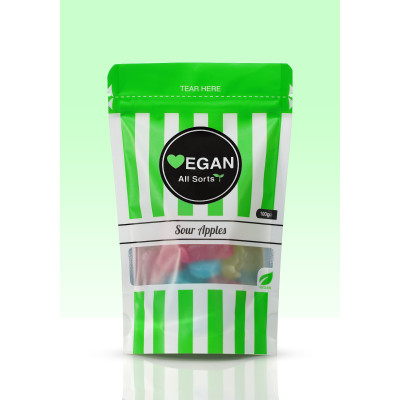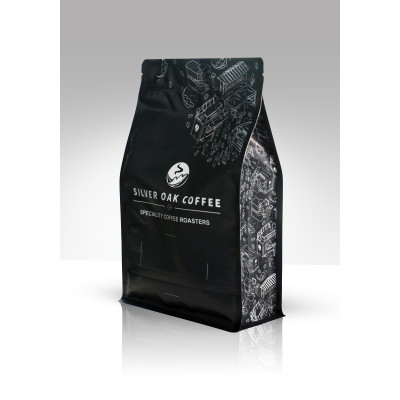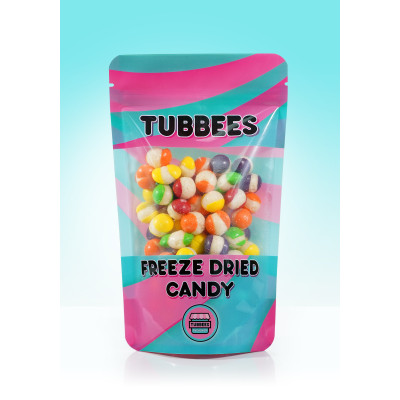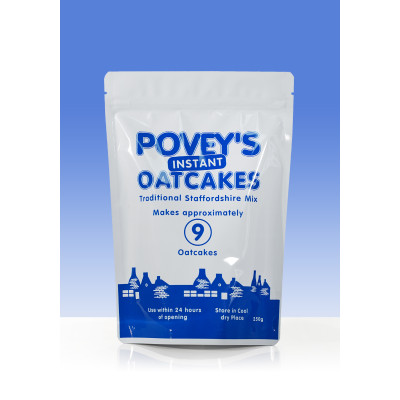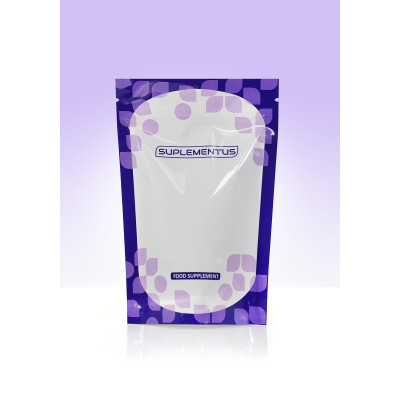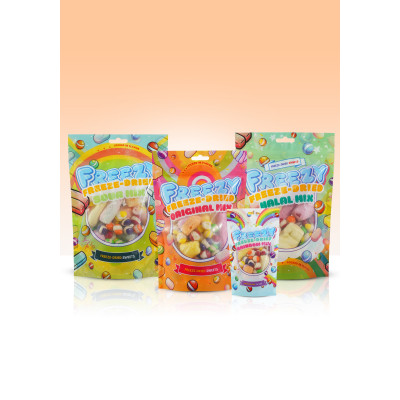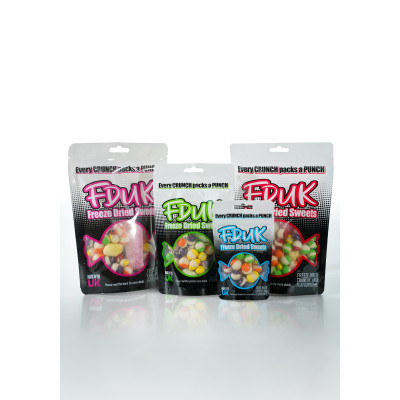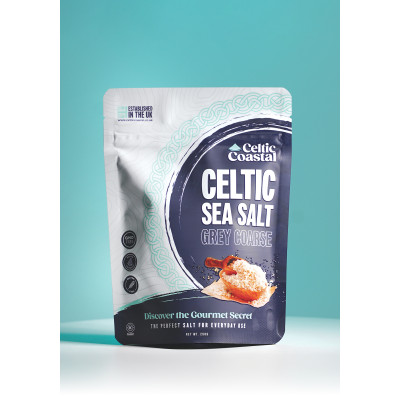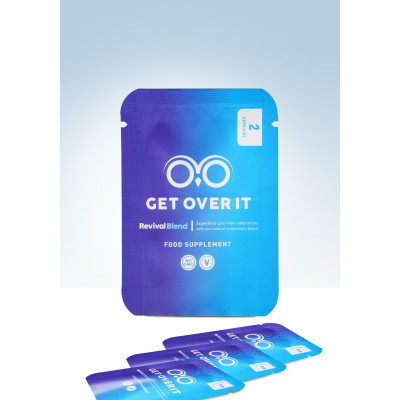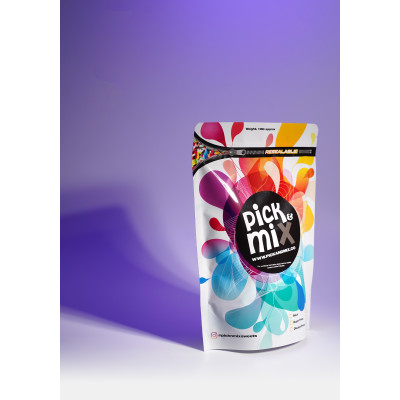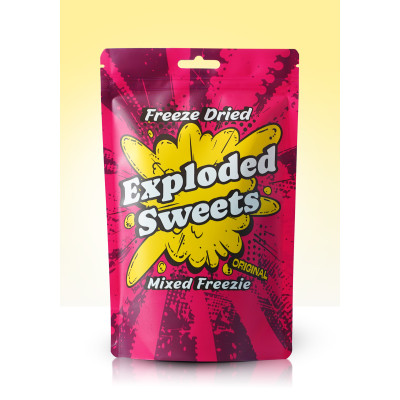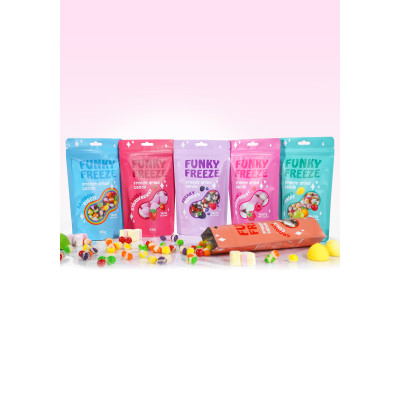Supplying Your Artwork To Us
We've put this guide here at RightPak to assist you with the provision of supplying your artwork to us to avoid delays and to ensure your print production ends up looking great. Please take a few minutes to review this document and its considered actions.

File Formats
We have certain criteria that is required to receive your artwork in a production level quality. It doesn't matter what software you create your artwork in as long as the delivered file to us meets our requirements which we'll detail here on this page. Your file must be set to the correct print size with bleed around the edge and in the correct colour mode.
We accept PDF, EPS and JPG file formats.

Resolution
When supplying artwork for print production, it's crucial to ensure that your files are set to a resolution of 300 dots per inch (dpi). This high resolution guarantees that your images and text will appear sharp and detailed in the final print. At lower resolutions, such as 72dpi (standard for web images), printed materials can look pixelated and blurry, which detracts from the professionalism and quality of your work. By providing artwork at 300dpi, you ensure that every element of your design is crisp and clear, maintaining the integrity and impact of your visuals. This standard is essential for achieving the best possible print results.
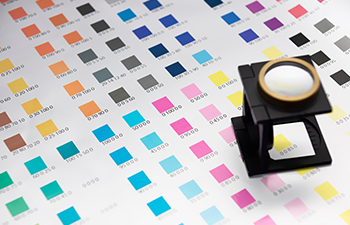
Colour
You should provide you artwork in CMYK and not RGB. Our production uses the colour process of Cyan, Magenta, Yellow and Black. If you supply your artwork in RGB format, this will lead to colour changes within your print production that can give you unexpected results.
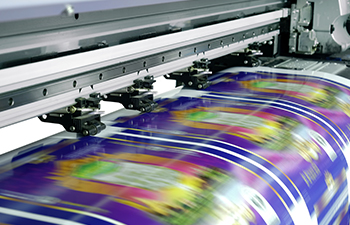
Artwork Bleed
When preparing artwork for print production, it's essential to include a 3mm bleed on all sides of your design. This bleed area ensures that there are no unwanted white borders when the final product is trimmed to size. By extending the background color, images, or design elements beyond the trim line by 3mm, you account for any minor inaccuracies in the trimming process. This extra margin guarantees that the final printed piece looks polished and professional, with the design seamlessly reaching the edges. Clients working with print production companies should always incorporate this bleed in their artwork files to avoid any issues with the final product's appearance.
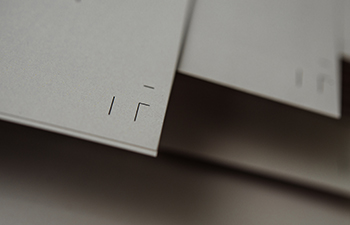
Crop Marks
Including crop marks in your artwork can be very helpful, although they are not strictly essential. Crop marks are small lines placed at the corners of your design to indicate where the paper should be trimmed. These marks guide the print production company in cutting your artwork to the correct size, ensuring precision. While professional printers can often work without them, especially if a proper bleed is included, crop marks add an extra layer of clarity and accuracy to the cutting process. By providing these guidelines, you help the production team deliver a cleaner, more accurate final product.
Packaging Types
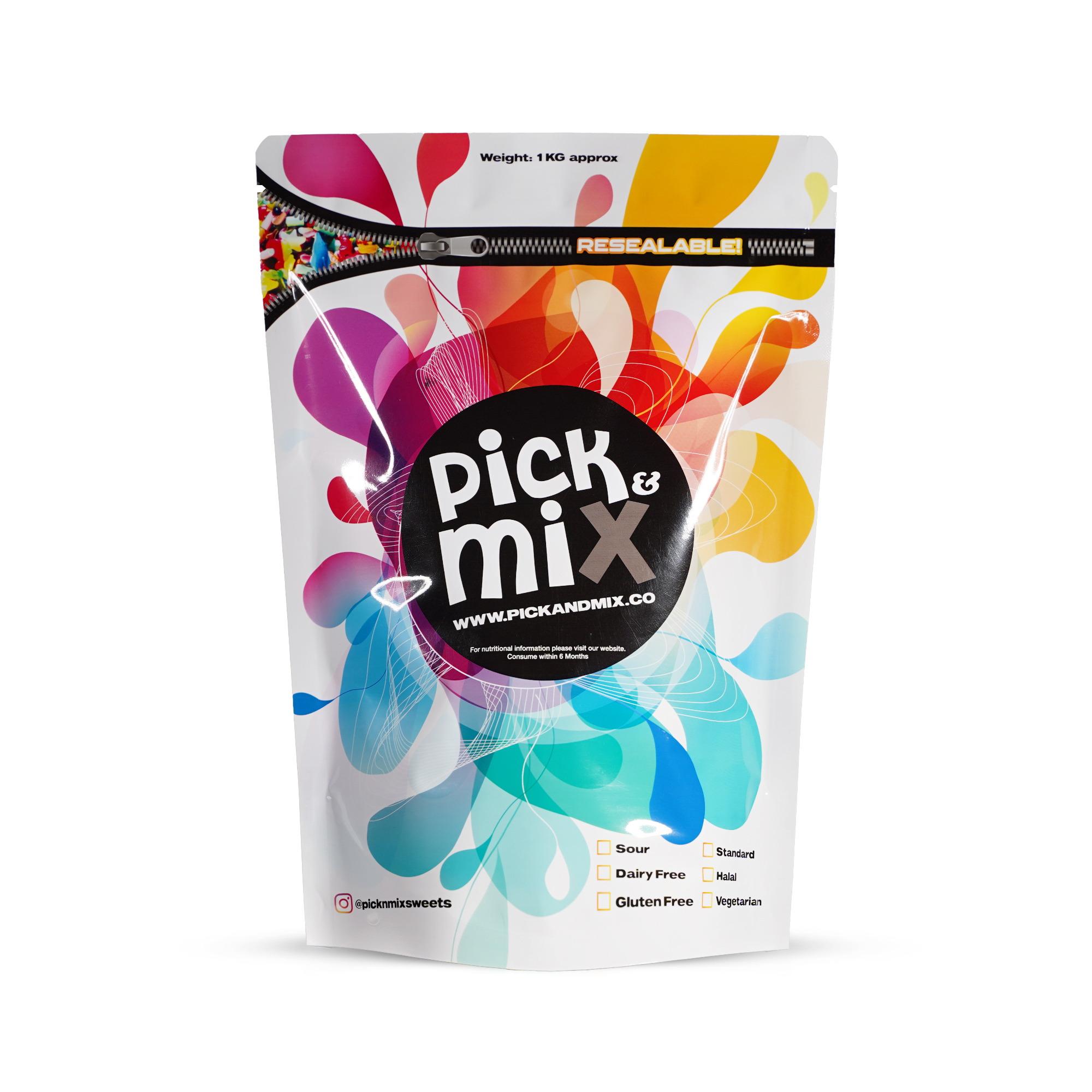
Stand Up Pouches
An ever popular packaging choice with an expanding bottom gusset that allows the pouch to go from space saving flat and compact, to self-standing as seen on many store shelves.
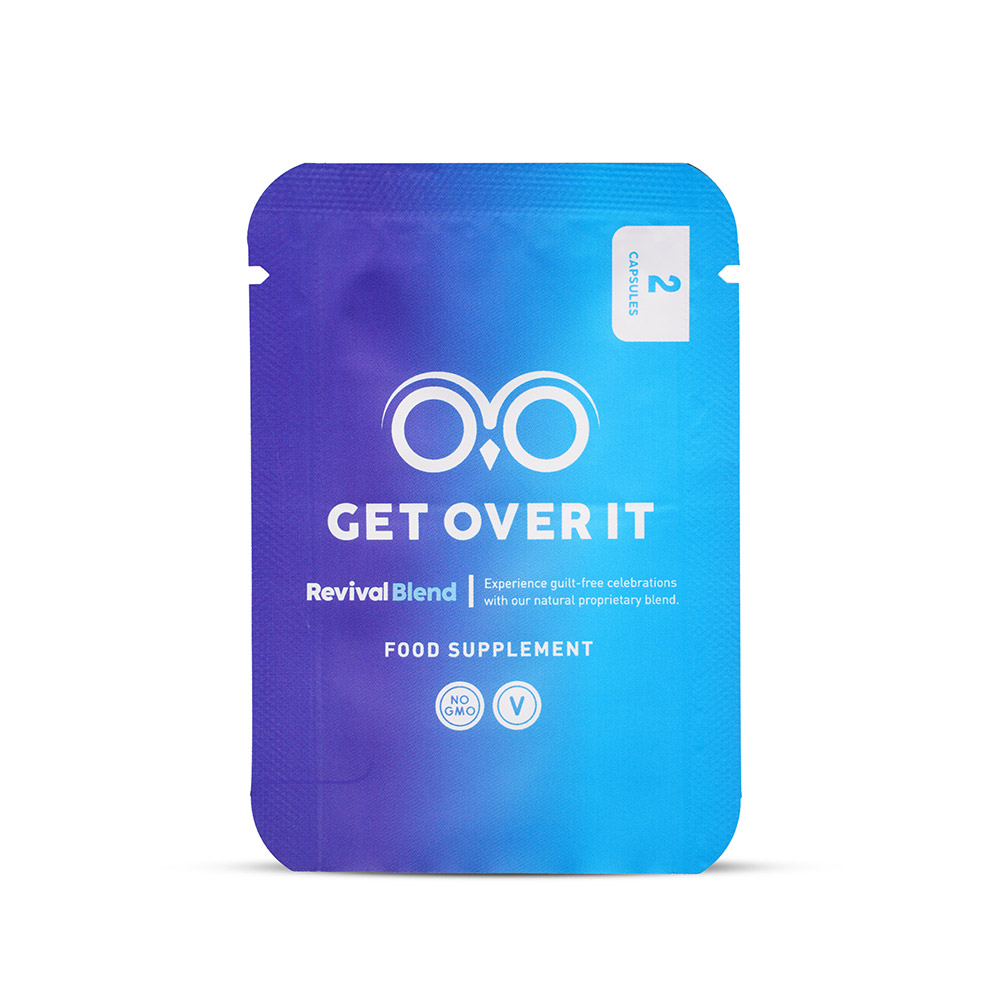
3 Side Seal
3 side seal pouches are a flat pouch that are made with 3 sides sealed, and one left open for you to apply your contents and heat seal close.
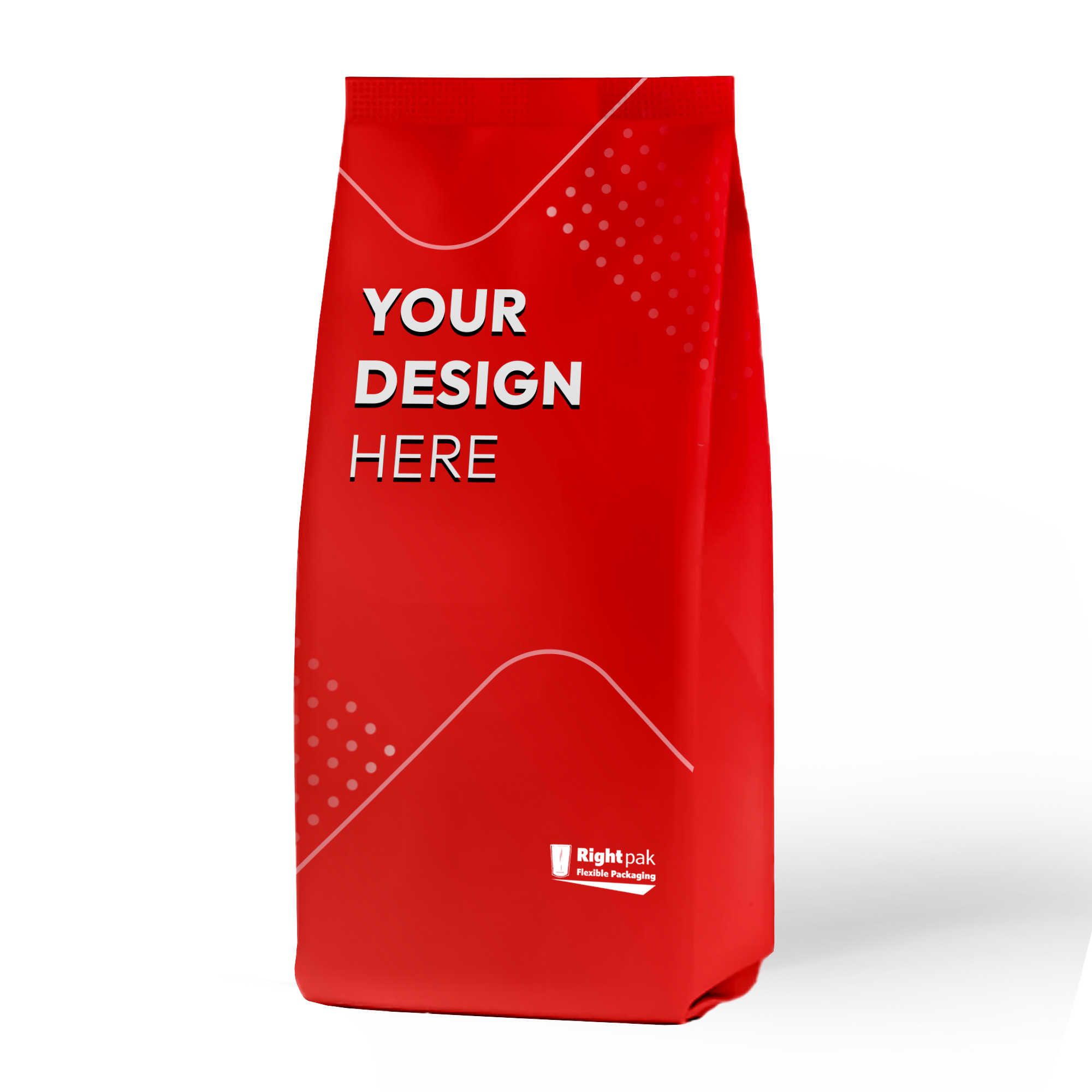
Side Gusset Pouches
Side Gusset pouches have two expanding side gussets without a resealable zip lock, offering a wide opening to provide unrestricted access to the contents within. The pouches have a single seal on one side of the pouch that runs from the top to the bottom of the pouch.
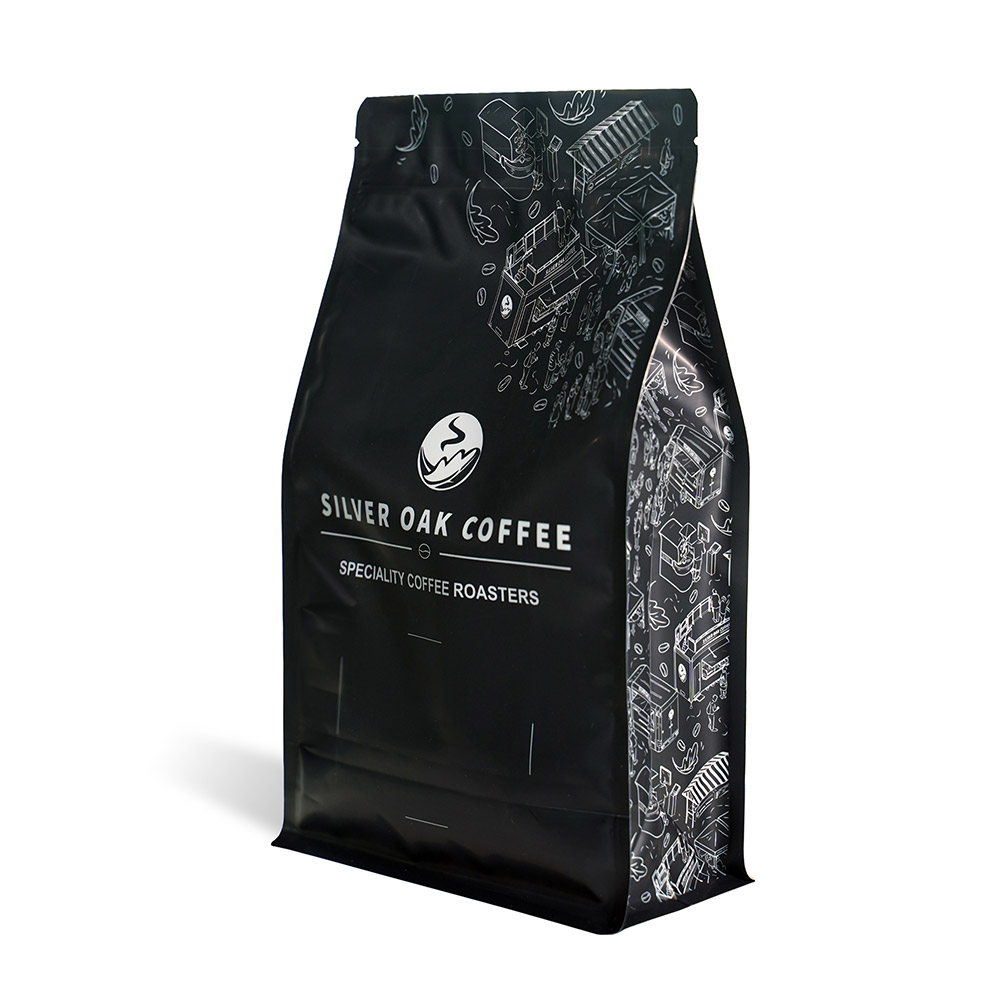
Flat Bottom Pouches
Also known as block bottom, box bottom pouches or 5 panel pouches; these have expanding side and bottom gussets that allows the pouch to go from space saving flat and compact, to self-standing thanks to its Flat Bottom feature.
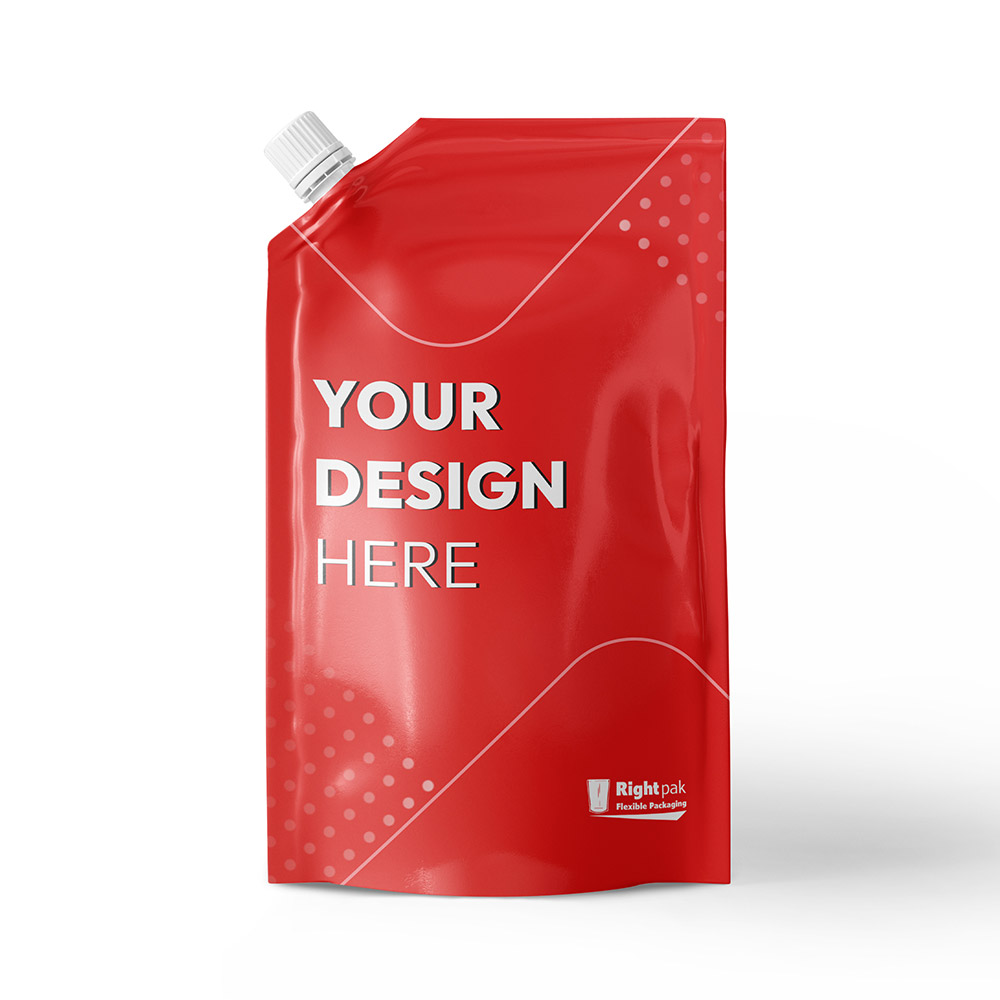
Spout Pouches
Spout Pouches are stand up bottom gusset pouches with a spout and resealable screw cap. These are an ideal durable packaging choice for products that need to be poured or easily squeezed to ensure that all contents are extracted avoiding waste.
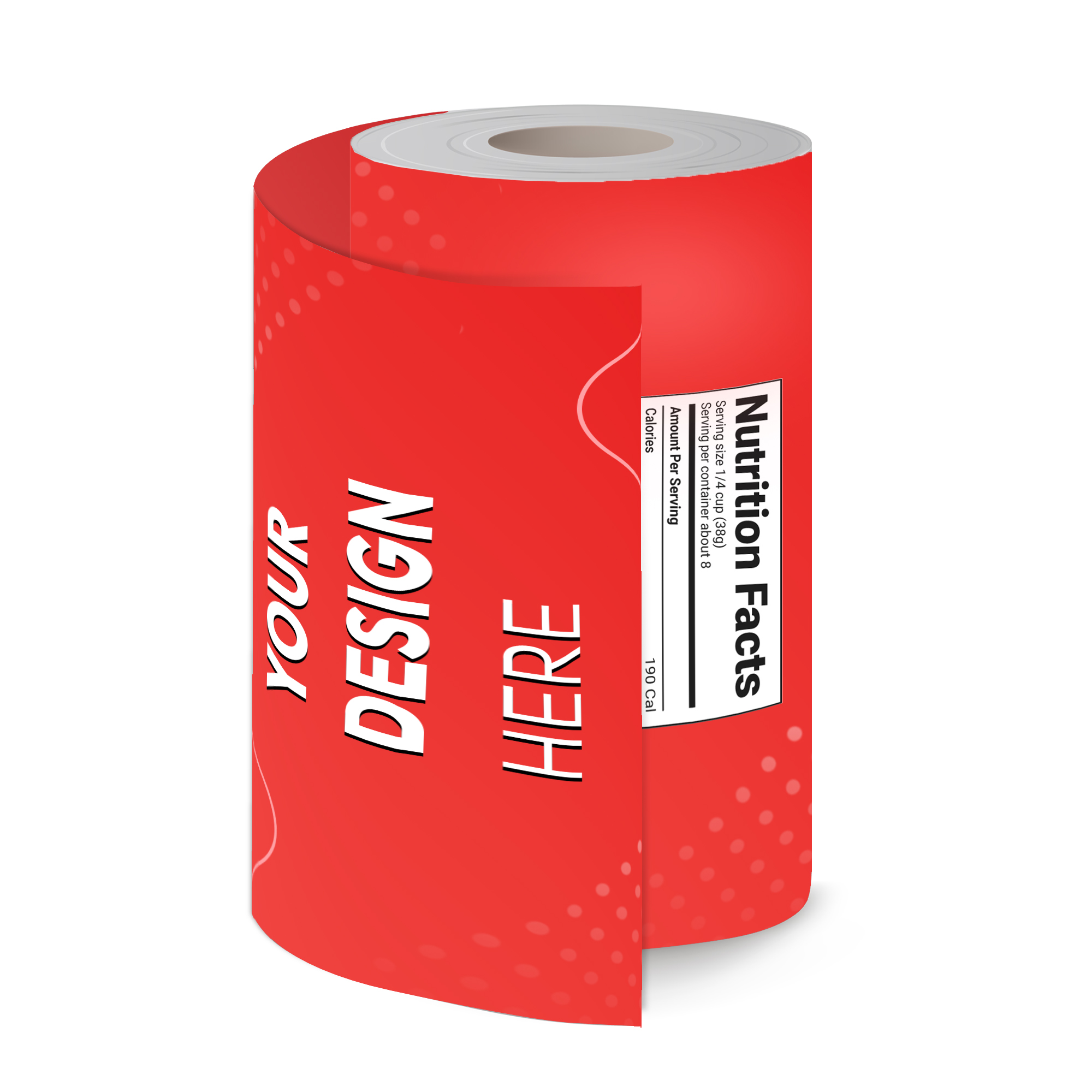
Printed Film
Printed Film also known as Printed Roll, Flow Wrap or Roll Stock is available in various films printed with your design and supplied on a roll to your specifications. This will be formed into your desired packaging type such as packets, sachets and lay flat pouches during the form fill and seal process using machines such as VFFS.
Customer Gallery Images
Custom Printing FAQs
Recyclable pouches can be recycled at home if your local authority allows for kerbside collection of soft plastics, such as Low Density Polyethylene (LDPE) of which our recyclable pouches consist of.
As an alternative, recyclable pouches can be recycled with plastic bag collection points at most supermarkets.
The MOQ varies depending on the packaging type and printing method:
- Digital printing has a low MOQ of 1,000 units
- Rotogravure printing has a high MOQ of 10,000 units
Flat bottom side gusset pouches require a MOQ of 10,000 units as these are only produced using Rotogravure.
Yes, any part of the film which forms the packaging can be printed with a design, including any gussets. Our custom printed flexible packaging is priced for fully customised packaging and isn’t limited to areas of design.
Plain film is printed with your design in its entirety prior to forming the film into a packaging product, therefore you have the scope to be as creative as you wish.
We provide a digital proof for approval and we’re able to send you a sample pack of our previous bespoke orders.
A print tolerance is whereby a certain percentage of the product produced may be either less than, or greater than the tolerance percentage noted on your quote and will be chargeable/creditable depending on the final quantity produced.
High speed printing experiences challenges when it comes to quantity specifics. You will be charged for any additional units according to the original order quantity and the tolerance percentage shown or you will be credited if the final quantity tolerance was below your original order quantity.
It’s worth noting that low order quantities are usually more costly per unit and can incur high percentage print tolerances. You might want to consider increasing your order quantity which may result in roughly the same cost but for more units!
- Request a Quote:
Visit our website to get in touch and either ‘Book a Free Consultation’ at a time to suit you to discuss your requirements or click ‘Get a Quote’ and provide us with details of your packaging project. - Receive Your Quote:
Once we’re aware of your requirements, we’ll prepare a no obligation quote which will be sent to you for review. - Approve the Quote:
After reviewing the quote, you can approve it if everything meets your needs. If adjustments are required, let us know, and we'll revise the quote accordingly. - Invoice and Payment:
Upon approval of the quote, we will issue a pro-forma invoice. The invoice will include all payment details and instructions. To proceed with the order, make the payment as outlined in the invoice terms.
- Digital printing is 100% advance payment.
- Rotogravure printing is 40% advance payment along with 100% advance payment of cylinder(s), and the 60% balance paid upon completion.
Testimonial
Really happy with Right Pak. Quality bags at great prices and customer service is brilliant. Thank you..

I wanted to take a small amount of time out to say that Rightpak set the standard for customer service. Orders always arrive on time and nothing is to..

We always order from RightPak, and they never disappoint. Their efficiency is top-notch—we consistently receive our deliveries quickly and without any..

Very high quality products and extremely high level service, I was very impressed with the customer service response from Lisha, she not only helped m..

I had a great customer service experience with Nidhi.. Helped me with my order and even helped in correcting an error I made. Nidhi is amazing . Even ..

Fantastic service! Not only sorted an issue in a quick and timely manner (not there fault, was Amazon) but also helped suggest an alternative and stil..

Can not beat the customer service with this lady who answers to their WhatsApp number. Replies more or less straight away and gets your orders done th..

Their services are exclusive, quick response and good quick delivery time. The products are also of a marvellous quality. The Kraft window bags are s..

Great service, we needed the goods really fast and they handled it right away!..

Great service from Rightpak, the guys were very helpful and made sure my order was spot on before dispatching it to me. Good quality products at a gre..

I am delighted to share my exceptional experience with RightPak, the distinguished packaging company that recently brought my brand's vision to life t..


